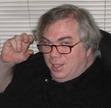End-of-June Progress Report
Hey! It’s been a while since I posted. And I don’t really feel sorry about that, because my resolve this year was to focus on my actual writing, and to write about my writing only intermittently, as I feel the need. And I’ve mostly managed to do that. So yay, me! Or something like that.
#######
First things first, I guess. A few weeks ago, I reached a point that I’d identified as about the 2/3 point on my high school empath novel, which is what I’ve mostly been working on this year on the creative front. Details of the plot kept shifting along the way, but that’s only to be expected.
And then it was time for me to prepare my first 30 pages to show to my new writing group (a YA-focused group that meets in Minneapolis, mostly not sf&f focused). The feedback I got confirmed a basic problem with the story as it exists so far: that is, the absence of an external conflict. And that’s a very real problem.
My original intended focus for this novel was one how a pretty ordinary teenager deals with the discovery that he’s an empath, just as he’s starting high school — with all the downsides I imagined from that. And I think I’ve done a pretty good job of that. But that’s not enough to hold the interest of readers.
#######
Way back when, I recall reading something by my good friend Dave Wolverton/Farland about the importance of making sure that your story is as good as it can be on every level: story and character and style and worldbuilding and theme and everything else. I remember thinking at the time something like this: “Wow, that’s hard. I bet you don’t have to really do all those things.” Looking now at my own writing, though, I think it’s important at least to try — not leaving any gaps where you know you haven’t put in a 100% effort.
For me right now, that means on the level of plot. Except that I think the problem is more basic than that. My story currently has one Big Idea: the teenage empath dealing with his unwelcome gift in the middle of an ordinary life. I think I need another Big Idea — especially if I want to attract readers of sf&f (young or otherwise), who tend to like ideas and brain food. Hopefully, that second Big Idea will give me a zone of intersection that can help generate some external conflict, as well as cool baubles that make readers say, “Ooh! Shiny!”
I’m beginning to think that in order to write a good story, what you really need to do is take the material for three stories and pour it into one story space, then boil it down until it all fits into that compressed volume. Which is a bit of a problem for me, since I’m not one of those people who generates ideas like berries on an overladen summer vine. I’m more of an elaborator: someone who can take an idea and stretch it out. But that’s not the skill I need right now, not if I’m going to make a story that can stand on its own as an idea story.
#######
Last weekend, I spent a day and a half at Fourth Street Fantasy, a single-track, limited-size sf&f con where the focus is on talking about ideas and the membership seems to be about half published authors — and the other half seriously creative and bright people in other arenas. It was, in short, a great brainfest: a bit like those good discussions we used to have in the science fiction and fantasy club in college, but with a group informed by experience and extensive knowledge.
I didn’t come out of it with any ideas specifically related to my empath story. If anything, I walked away with a bigger sense of just how much there is to think about in crafting a really good story. But I’m hoping that the effect of all this — plus discussions with other people, and reading about medieval technology, and some intensive thinking sessions (in between paid work, which is gratifyingly plentiful this summer) — will be to crank up the old thought engine and give me something new to work with. And then it will be time for me to start over again, from the beginning. I almost look forward to it.



